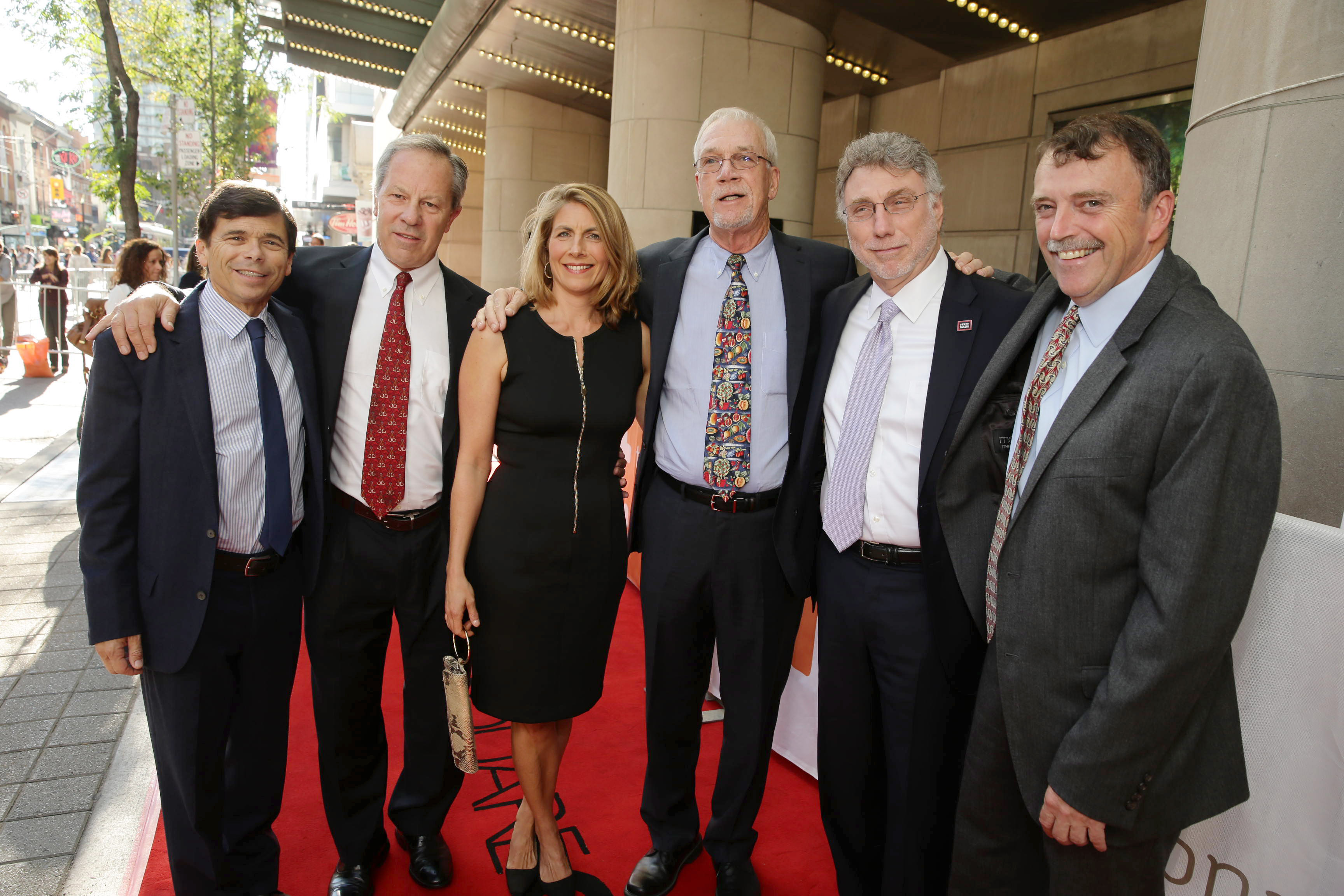The origins of the Oscar-nominated film “Spotlight” can be traced to Harvard, in a 2003 issue of Nieman Reports.
Speaking at Harvard’s Kennedy School earlier this month, Globe editor-at-large Walter V. Robinson remarked that if it weren’t for Nieman Reports, “Spotlight” wouldn’t even exist. “It is a small miracle that this film was ever made,” said Robinson. “And in fact, the idea would never have caught the attention of Hollywood had it not been for Harvard’s commitment to journalistic excellence.”
Robinson, portrayed by Michael Keaton in the film, helmed the Globe’s Spotlight investigative team when it broke the scandal in January 2002. The team eventually published hundreds of articles detailing numerous cases of child sex abuse by Roman Catholic priests in the Boston area and the church’s widespread cover-up of the abuse. Though Spotlight’s news stories received massive attention around Boston, the U.S., and even internationally, Robinson never considered that the backstory of how his team reported the scandal would be of much interest to people.
“When the stories ran there was an enormous amount of attention to the stories and, I think appropriately, not much at all to how we did the stories,” said Robinson, who was surprised when Melissa Ludtke, then editor of Nieman Reports, approached him to write about Spotlight’s investigation. “[She] called me up and asked me to write something for Nieman Reports about how we did the story and I kind of said, ‘Really?’”
Ludtke, who was putting together the package “Journalist’s Trade: Investigating Scandal in the Catholic Church” for the magazine’s Spring 2003 issue, convinced Robinson that the story was worth sharing, prompting him to write about how Spotlight discovered and documented the sexual abuses of local priests.
In “Shining the Globe’s Spotlight on the Catholic Church,” Robinson—who said he wrote the 3,000-word article in a single afternoon—recounted how he and Spotlight reporters Michael Rezendes, Sacha Pfeiffer, and Matt Carroll (played by Mark Ruffalo, Rachel McAdams, and Brian d’Arcy James, respectively), meticulously examined the Church’s annual directories, court records, and other documents, piecing together the massive cover-up.
That article turned out to be the genesis of the “Spotlight” film. A few years after it was published, the article caught the eye of a Columbia journalism professor, who—in order to create a case study for students to consider legal and ethical issues inherent in reporting on the Church scandal—went to Boston to interview members of the Spotlight team. That researcher later met two producers, Nicole Rocklin and Blye Faust, who showed an interest in Spotlight’s painstaking investigation into the scandal and optioned the life rights of those involved—Robinson, Rezendes, Pfeiffer, and Carroll, along with Marty Baron, then editor of the Globe, and Ben Bradlee Jr., who was assistant managing editor.
“They came to Boston to talk to us and to try to buy the rights to our story, which is basically coffee money. Actually I kid Blye Faust; I said, if she wasn’t buying us breakfast at the Ritz, we never would have met with her, because none of us thought that how we made the sausage really was interesting at all.”
Robinson, of course, was proved wrong. The film has been honored with dozens of accolades and is included on more than a hundred 2015 “Top Ten” lists. “Spotlight” was nominated for Academy Awards for best picture, writing (original screenplay), film editing, directing, and best supporting actor and actress.
One thing Robinson has learned from the long process of getting “Spotlight” from Nieman Reports to the silver screen? The film industry is just as tumultuous as journalism. “I’m happy to report that it’s a lot more chaotic than the newspaper business,” he said. “It’s amazing that anything gets made.”



